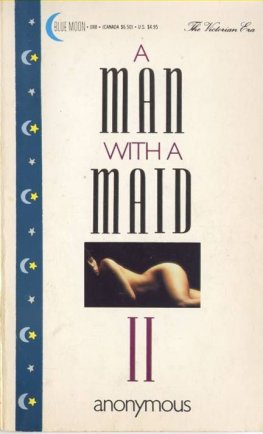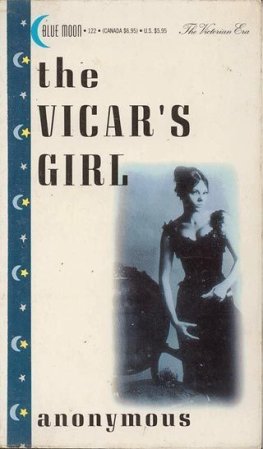Anonymous - Pamela
Here you can read online Anonymous - Pamela full text of the book (entire story) in english for free. Download pdf and epub, get meaning, cover and reviews about this ebook. genre: Romance novel. Description of the work, (preface) as well as reviews are available. Best literature library LitArk.com created for fans of good reading and offers a wide selection of genres:
Romance novel
Science fiction
Adventure
Detective
Science
History
Home and family
Prose
Art
Politics
Computer
Non-fiction
Religion
Business
Children
Humor
Choose a favorite category and find really read worthwhile books. Enjoy immersion in the world of imagination, feel the emotions of the characters or learn something new for yourself, make an fascinating discovery.

- Book:Pamela
- Author:
- Genre:
- Rating:4 / 5
- Favourites:Add to favourites
- Your mark:
- 80
- 1
- 2
- 3
- 4
- 5
Pamela: summary, description and annotation
We offer to read an annotation, description, summary or preface (depends on what the author of the book "Pamela" wrote himself). If you haven't found the necessary information about the book — write in the comments, we will try to find it.
Pamela — read online for free the complete book (whole text) full work
Below is the text of the book, divided by pages. System saving the place of the last page read, allows you to conveniently read the book "Pamela" online for free, without having to search again every time where you left off. Put a bookmark, and you can go to the page where you finished reading at any time.
Font size:
Interval:
Bookmark:
Anonymous
Pamela
On the summit of a little hill, one can see in outline the chateau of Quail Rock which proudly and authoritatively dominates the little village which belongs to it. This ancestral dwelling, which has always sheltered the dynasty of the de Chavignacs, has become renowned, neither for its architecture nor wealth the many sculptuaries and paintings by masters which decorate its interior, nor again for its fabulous underground tunnel whose origin is obscured by the centuries, but principally for the births of its heirs, some of whom have having brought it a sinister fame through behavior which recalls that of the infamous Gilles de Rais in his own terrible chateau of Tiffauges in the Vendee.
In 1549, Louis de Brow, father-in-law of the beautiful Princess Charlotte de Chavignac, seduced this delectable young woman. In return, he was delivered up to the villagers by his own victim, who denounced his odious rape to these serfs who were her subjects as they were his. His punishment was hideous indeed: despite his mature age and his noble blood, Louis de Brow was tied by the wrists to the tail of a wild horse and dragged through the fields till he was torn to shreds. Then, unsatisfied with their grisly work, the peasants fried the remnants of his carcass and fed those morsels to their pigs and cows, all except de Brow's testicles, which were preserved for their reproductive powers. These were nailed to the wall of a villager's hut till they were dry and resembled prunes.
But let us briefly recall how this tragedy came about. Louis de Brow, 55, married and the father of an only son, took advantage of a morning when he found himself alone in the chateau with Charlotte, his twenty-two-year-old daughter-in-law, to enter her bedchamber. Charlotte, in the midst of a deep sleep, was startled into waking by feeling a hand caress her bottom. Her father-in-law, having long coveted her body, had seized his opportunity to enter and lifting her long nightgown, had begun to caress her. She tried to call for help, but de Brow clamped his hand over her mouth, and mounting her, kneed open her pink firm thighs. His glittering eyes beheld the thick, curly, black triangle at the apex of those deliriously rounded thighs.
One hand on his stiffened cock which he delicately caressed to rouse himself to heroic fortitude, he caressed her cunny with his other hand, while the frantic young beauty twisted and writhed to escape the penetration by that taut red weapon which awaited her. But thanks to his expert frigging, Charlotte could not contract her slit against his inroads; then, as his massive tool entered her lovecavern and began its ardent probing, she lost all control and swooned as his generous lust-libation spurted deep into her chasm.
When she came to, Charlotte denounced her amorous assailant and turned him over to the infuriated villagers, exhorting them to avenge her shameful dishonor. Before tying him to the horse's tail, several peasant women stripped off his trousers and underclothes and then masturbated him till he bled, while other harpies, still more sadistically lustful, bit his testicles to the blood before they cut them off with a pair of wool shears.
Years after this tragedy, one could admire the testicles of Louis de Brow, which, after having been dried, were eventually nailed to a barn door with a yellowing paper on which this inscription could still be read: Like Pierre Abelard, celebrated for his passion for Heloise, Louis de Brow endured the same fate as that illustrious theologian and philosopher by losing his balls forever.
In 1780, Duke Julien Faustin de Chavignac, the eighteen-year-old grandson of a daughter of this same Charlotte, put his mother to death after having ravished her, by throwing her into a red-hot brazier which had been lighted in the court of the chateau to celebrate St. Joan of Arc's Day. The indignant peasants who watched this horrifying scene fell on this unnatural son with their cudgels, and cast him into the fire where his ashes mingled with his mother's.
We discovered the details of this somber drama in an old, brittle-paged book, given in brief but graphic resume:
Madame Carrol de Chavignac had just taken her bath. Standing before her mirror, she was admiring her artistically molded body. Through the double curtains, a ray of the sun illumined her sculptural curves. Gently, the velvet portals were lifted: a young man stood in ecstasy before this divine beauty. But the mirror betrayed his presence. Slowly, the woman turned her head towards her indiscreet admirer and smiling said, My son!
Startled, Julian came forward and kissed his mother's naked shoulder. Anne-Marie offered him her lips, and he crushed them in a burning kiss. Then this incestuous son fondled the bottom cheeks of this Venus, while she with her soft white hand frigged his cock and balls. When she felt his hand press commandingly on her back, she bent over, straddling her legs. And then, with all the vigor of his youth, Duke Julian buggered his mother, till at last the hot ferocious jet of his gism brought her to her own ecstatic come, abetted by the frigging of her own passionate fingers.
Yet in aftermath, the young Duke was horrified by the lustful acquiescence of his beautiful mother. He foresaw that her attractiveness to him and her own noble rank and power might prejudice his ascent to the title of lord of this province, and so he decided without more ado to execute her who had given him birth and then been first to teach him the delights of fucking and bugger. But we see how cruelly he was punished for his incestuous crime.
In our own times, the chateau of Quail Rock has once again won fame through an exploit that imperiled its dignity but which also brought the name of the Chavignacs to public attention.
In order to facilitate the reading of this text, we believe it useful to tell our readers that only two heirs of this great house of Quail Rock still exist: Count Fabian Luce de Chavignac, 52, rich owner of plantations at Fort-Lamy, and the Baron Prosper Agrume, his brother, forty and a bachelor. The Vicountess Anne-Marie de Chavignac, sister of these two, died and was buried in the family vault at the tender age of three. The chateau itself, dilapidated over the years, was sold, and Prosper Agrume went to live in Paris, while his brother Fabian left for tropical climes and was not heard from for years.
Fifteen years before, on a beautiful spring day, Count Fabian Luce took as his bride Countess Marguerite de la Moyse. It was a love marriage. Count Fabian was then nearly 38, his young countess only twenty. A year later, after an ecstatic honeymoon, Marguerite gave birth to a girl named Martine-Chantal. Count Fabian's joy in his daughter was short-lived, for his beautiful wife died a few days later, thanks to the clumsiness of the midwife. Martine was put in charge of a nurse to give her suck. Crushed by his grief, Count Fabian left the chateau and went to Fort-Lamy. The years rolled by, and then one day, realizing that he would never return to the chateau which symbolized all his despair, Count Fabian sent for his daughter Martine, then fourteen, she being his only reason to live.
When, after her long journey, she stood before him, he could not stifle a cry of astonishment: How beautiful you are!
And he thought to himself, She is the image of her mother. Indeed, the young girl was a living likeness of Countess Marguerite: tall, well-fleshed, blond hair, chestnut brown eyes, and already deliciously formed considering her tender years. Her languorous look, her smile, recalled his wife to him, that blond, passionate spouse so tender in the lists of love. The young girl had the same gestures, the same supple gait which is always the sign of a good fucker, the elegant allure all these attributes which she had inherited from a mother who, in her own expert knowledge of fucking, had known how to give pleasure to a husband so much older than herself. He stared at Mar-tine, with a look that conveyed his secret desires, a look that neither of them could efface even with fond smiles and idle chatter. And on the evening of that first day, Count Fabian surprised his daughter in deshabille, busying herself with combing her hair before the mirror. In the diary he regularly kept, he himself relates the facts:
Font size:
Interval:
Bookmark:
Similar books «Pamela»
Look at similar books to Pamela. We have selected literature similar in name and meaning in the hope of providing readers with more options to find new, interesting, not yet read works.
Discussion, reviews of the book Pamela and just readers' own opinions. Leave your comments, write what you think about the work, its meaning or the main characters. Specify what exactly you liked and what you didn't like, and why you think so.

















